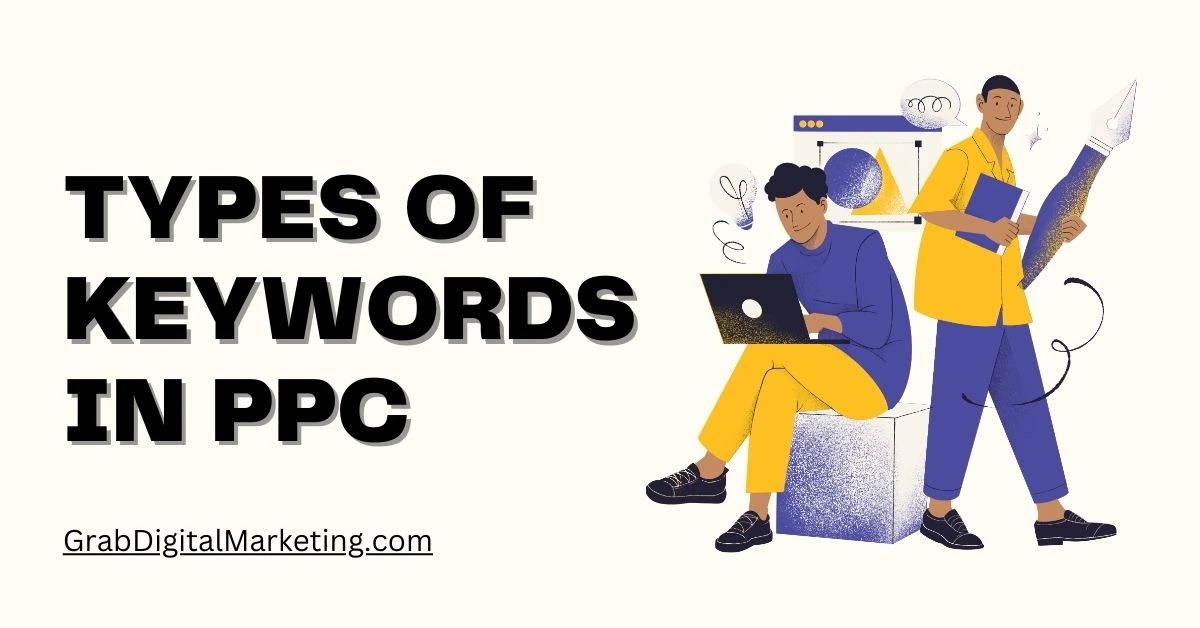How many Types of Keywords in PPC?
In PPC (Pay-Per-Click) advertising, keywords are categorized based on their purpose and targeting strategy. Broad match keywords allow ads to appear for searches related to the keyword, even if the exact phrase isn’t used. Exact match keywords ensure ads are shown only when users search for the precise keyword phrase. Phrase-match keywords trigger ads when the search includes the keyword phrase in the same order.
Table of Contents
Pay-per-click (PPC) advertising is a powerful tool for businesses to reach their target audiences and drive traffic to their websites. One key element of a successful PPC campaign is the selection and management of keywords. Keywords are the terms or phrases that users enter into search engines when looking for information, products, or services. By bidding on the right keywords, advertisers can ensure that their ads are displayed to the right audience at the right time. In this article, we’ll explore the different types of keywords in PPC and how they can be effectively used in a campaign.
1. Broad Match Keywords
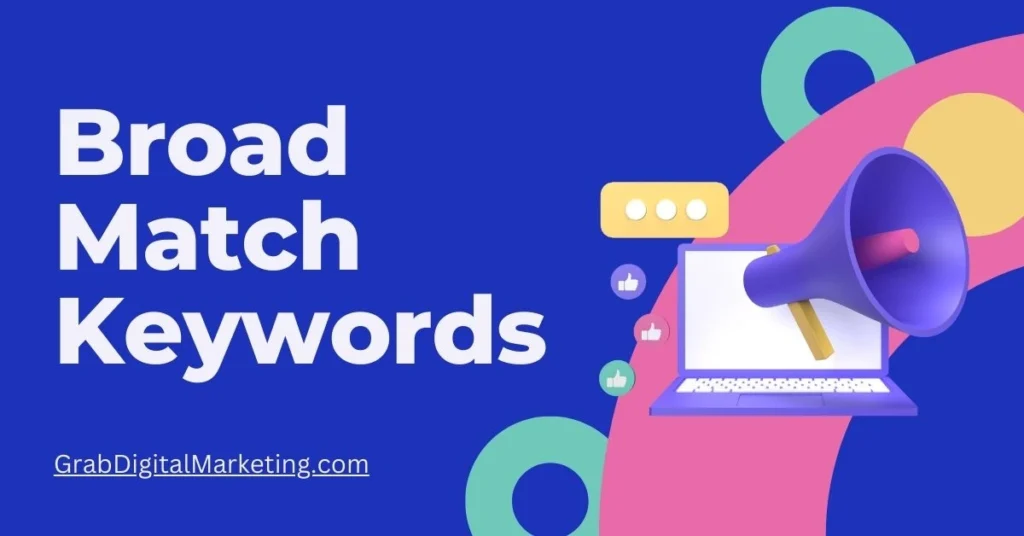
The main advantage of broad match is that it helps you reach a wider audience and capture traffic you might not think of on your own. However, because it casts a wide net, it can sometimes show your ad for unrelated searches. Many advertisers use broad match when they want to discover new keyword opportunities and expand reach, while still keeping an eye on performance through regular monitoring. It’s especially useful when combined with Google’s AI-powered Smart Bidding, which uses machine learning to decide when your ad is most likely to convert, even if the search term isn’t an exact match.
Advantages:
- Increased reach and visibility
- Captures a wide range of search queries
Disadvantages:
- Less control over which queries trigger your ads
- Potential for higher costs due to irrelevant clicks
2. Broad Match Modifier (BMM) Keywords
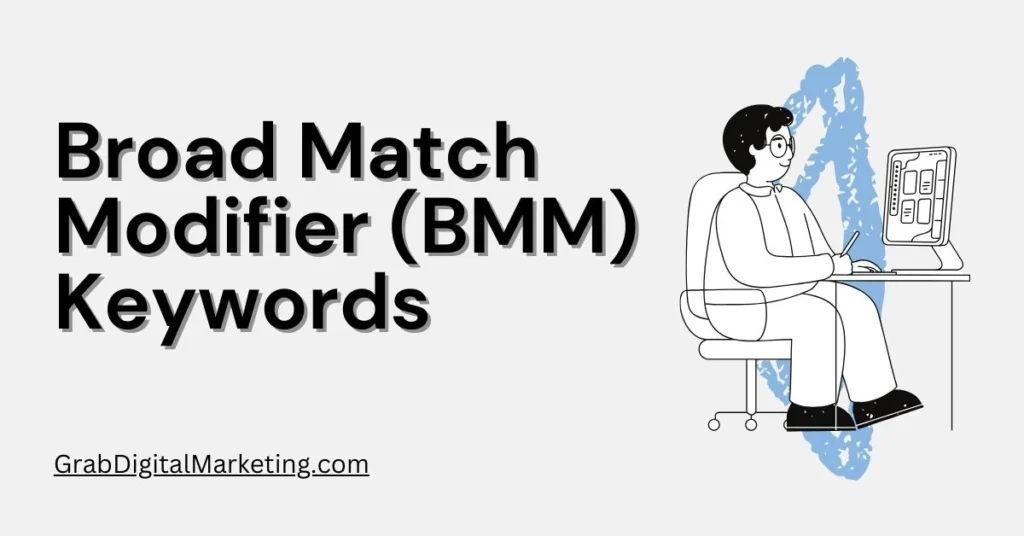
Broad Match Modifier (BMM) Keywords in Google Ads were a way to target ads more precisely than classic broad match. With BMM, you added a plus sign (+) in front of keywords that must be present in the user’s search for your ad to show. For example, if you used +travel +bags, your ad could show for searches like “best travel bags,” “buy travel bags online,” or “travel bags for men,” as long as “travel” and “bags” (or close variants) appeared in some order. This approach gave advertisers a balance: it helped you reach a wide audience but still kept your ads relevant by ensuring those key terms were included in each matched search. It was especially useful to avoid wasted clicks and budgets on irrelevant queries. Broad Match Modifier keywords increased your chances of converting clicks because ads appeared for queries closely related to your products or services, potentially boosting click-through and conversion rates.
Advantages:
- More control over which queries trigger your ads
- Balances reach with relevance.
Disadvantages:
- Still less precise than exact match or phrase match keywords
3. Phrase Match Keywords
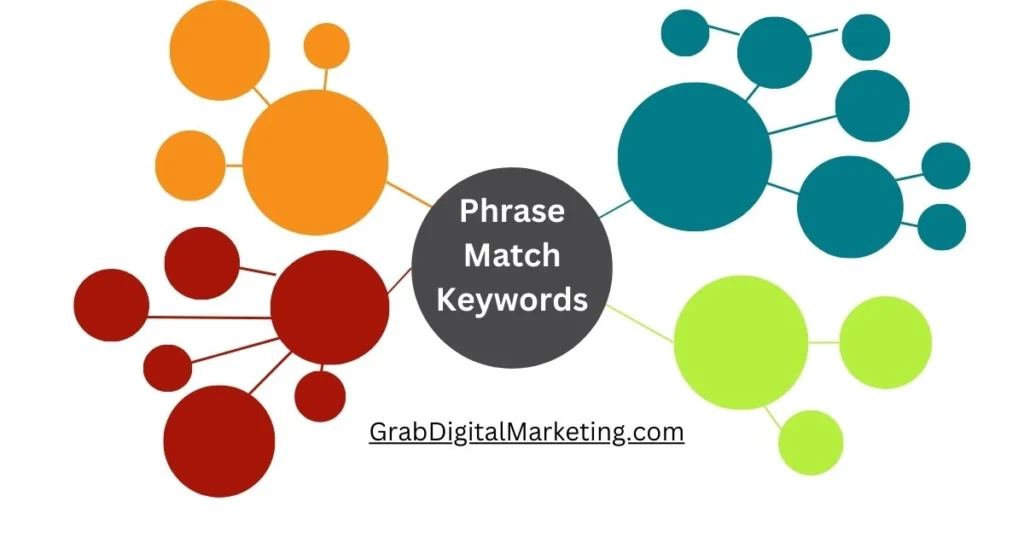
Phrase Match Keywords in Google Ads help you reach people who are searching with terms that closely match the meaning of your selected keyword. To set up a phrase match, you put your keyword in quotes, like “running shoes”. This means your ad can show when someone searches for that exact phrase, or close variations, even if they add other words before or after, such as “best running shoes for women” or “buy running shoes online”. Phrase match gives you more control than broad match, but it isn’t as restrictive as exact match. It focuses on search intent, so even if the order of the words changes a little, your ad may still appear if Google thinks the user is looking for what you offer. For example, “affordable plumbing services near me” could trigger ads for “licensed plumbing services near me” because the intent matches, but not for unrelated searches like “DIY plumbing tips”.
Advantages:
- More precise targeting
- Higher relevance and potential for better conversion rates
Disadvantages:
- Reduced reach compared to broad match keywords
- Potential to miss out on some relevant search queries
4. Exact Match Keywords
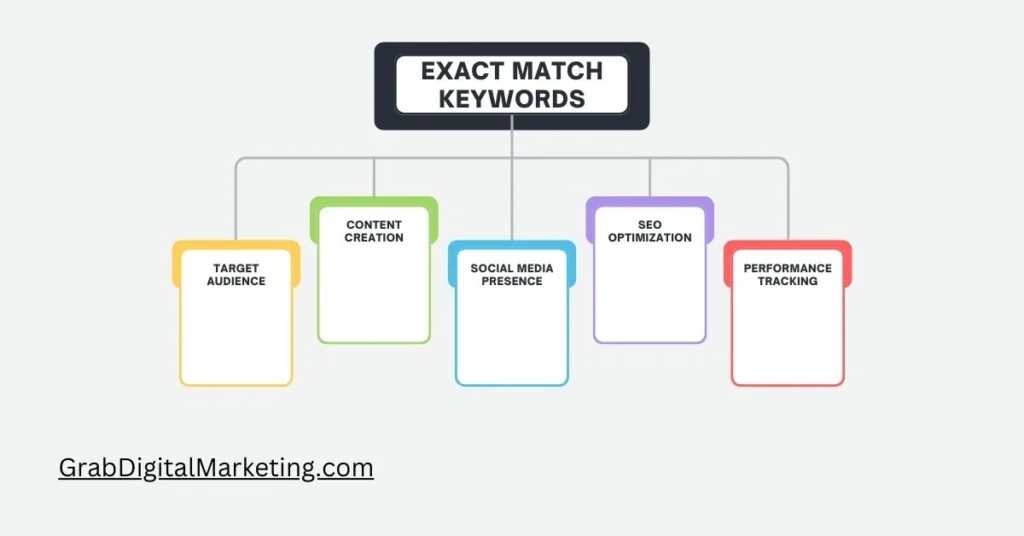
Exact Match Keywords in Google Ads let you target users searching for your precise keyword or very close variants, giving you maximum control over who sees your ad. If you use an exact match keyword, like [ceramic mixing bowl], your ad will usually only appear when someone enters that exact phrase or something with the same meaning or intent, like “ceramic bowls for mixing” or “mixing bowl ceramic”. This strict targeting helps ensure your ads are only shown to people looking specifically for what you offer, which means your audience is highly qualified and the chances of clicks converting to customers are much higher. However, because your ad shows for fewer searches, you may get fewer impressions compared to broader match types, but you will likely see a better click-through rate and return on your ad spend.
Advantages:
- Highest level of control and precision
- Increased relevance and higher potential for conversions
Disadvantages:
- Limited reach
- Requires thorough keyword research to ensure all relevant queries are covered
5. Negative Keywords
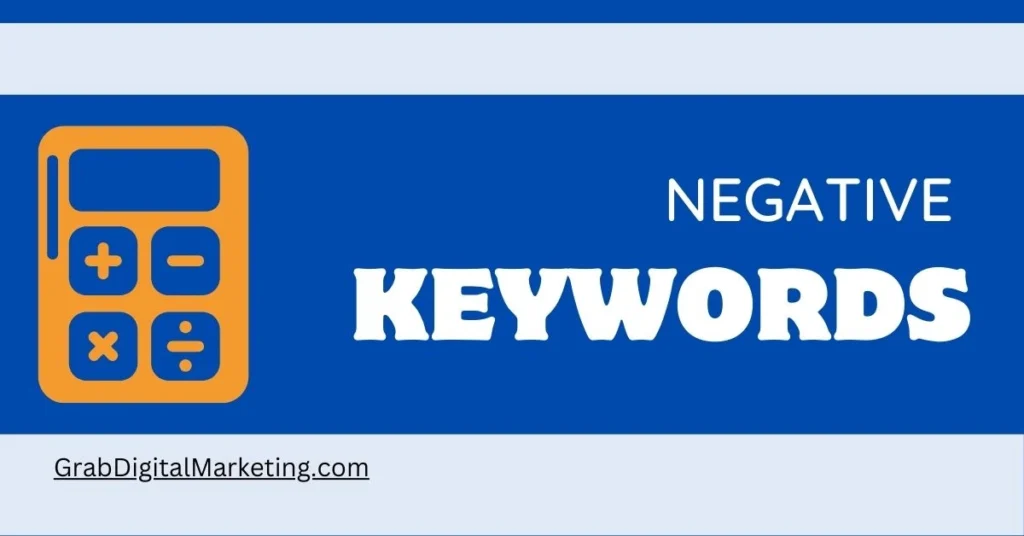
Negative Keywords in Google Ads let you block your ads from showing for search terms that aren’t relevant to your business. For example, if you sell luxury watches, you can add words like “cheap” or “free” as negative keywords so your ads won’t appear to users searching for “cheap watches”. This helps you spend your advertising budget more effectively and reach people who are genuinely interested in your products.
Advantages:
- Prevents irrelevant clicks and wasted ad spend
- Improves campaign performance and ROI
Disadvantages:
- Requires ongoing monitoring and management to identify new negative keywords
6. Long-Tail Keywords
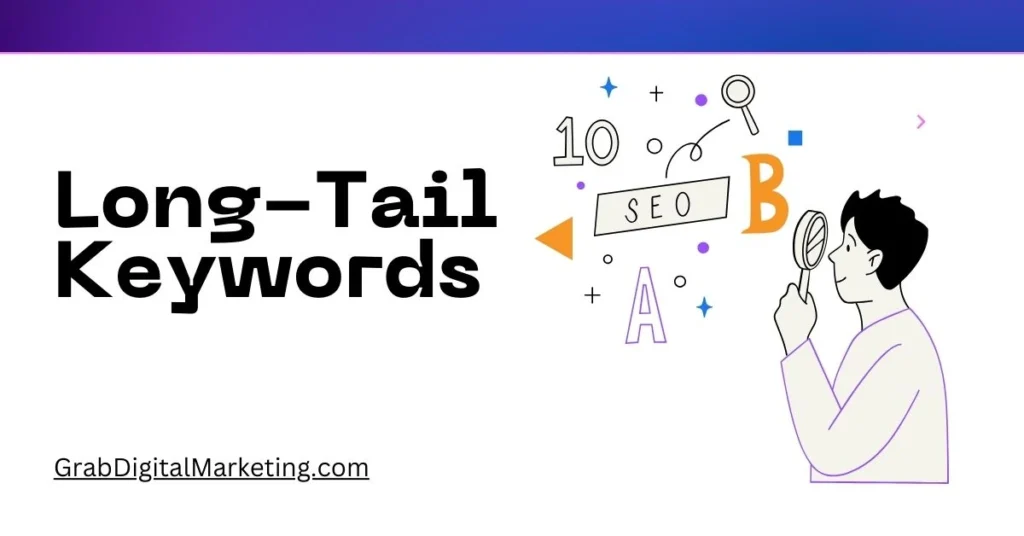
Long-Tail Keywords are longer and more specific keyword phrases that people often use when they are closer to making a purchase or searching for something very particular. Unlike broad, short keywords like “shoes,” a long-tail keyword might be “comfortable running shoes for flat feet” or “organic dog food for sensitive stomachs.” These detailed phrases tend to have lower search volumes but attract a more targeted and motivated audience who know exactly what they want. Because long-tail keywords are so specific, there is usually less competition for them, making it easier for smaller websites or new advertisers to rank higher in search results or win ad placements. They also tend to have higher conversion rates since the users searching with these phrases are often ready to buy or take action. For example, someone searching “best noise-canceling headphones for travel” is more likely to purchase than someone searching just “headphones.
Advantages:
- Lower competition and cost-per-click
- Higher intent and potential for conversions
Disadvantages:
- Lower search volume
- Requires more extensive keyword research
7. Short-Tail Keywords
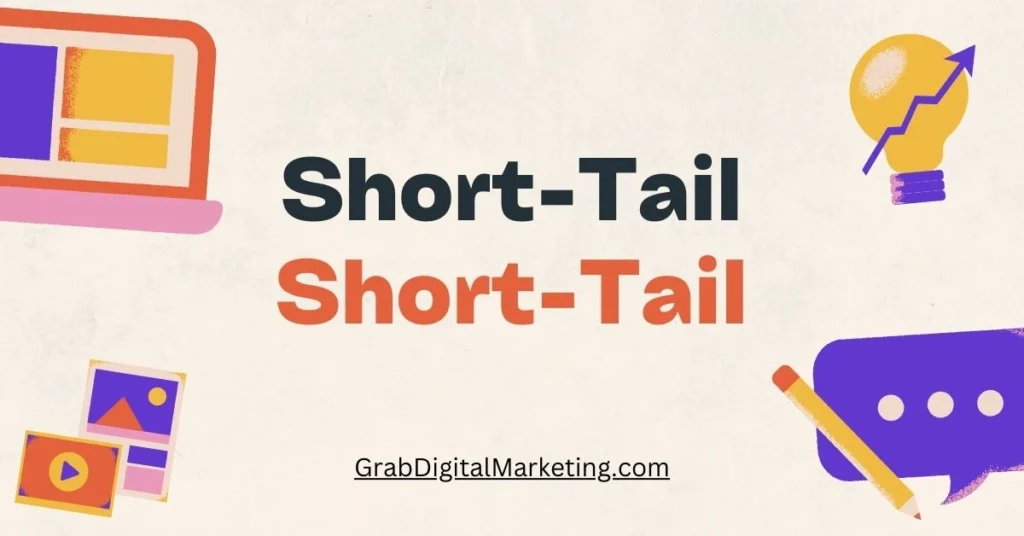
Short-Tail Keywords are brief and general search terms, often just one or two words, that cover a broad topic. Examples include keywords like “shoes,” “laptops,” or “coffee.” Because they are broad, these keywords attract a lot of search traffic but tend to be very competitive, as many advertisers and websites are targeting them. While short-tail keywords can bring a large number of visitors to your site or ad, the audience is less specific and may have varied search intents. For example, someone searching “shoes” could be looking for running shoes, formal shoes, or even shoe repair services. This means the chances of converting that traffic into customers may be lower compared to more specific keywords.
Advantages:
- High search volume and visibility
- Can drive a significant amount of traffic
Disadvantages:
- High competition and cost
- Lower targeting precision and potential for lower conversion rates
8. Branded Keywords
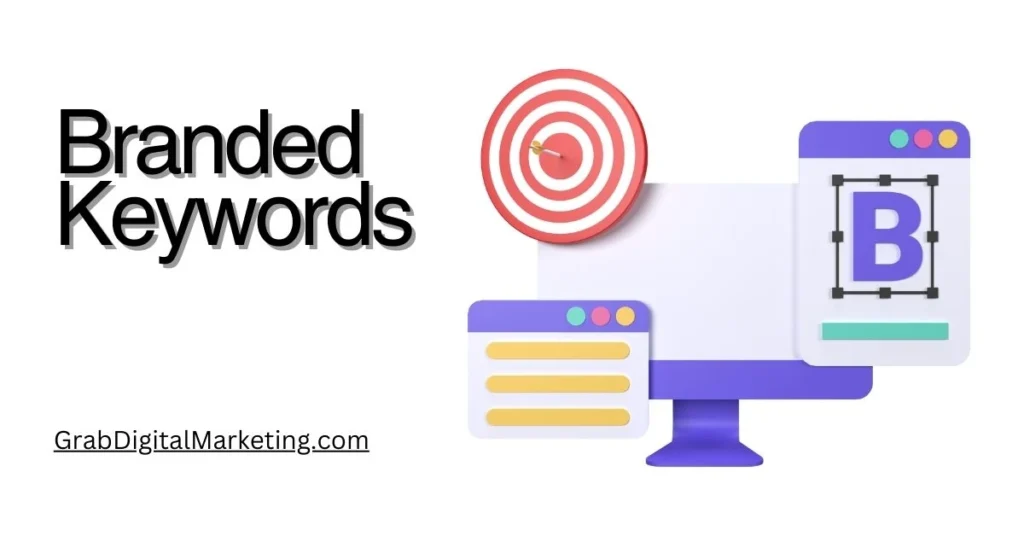
Branded Keywords are search terms that include the name of your company, product, or brand. For example, if your brand is “Nike,” keywords like “Nike shoes,” “Nike running gear,” or even misspellings like “Nkie shoes” are considered branded keywords. These keywords target users who already know your brand or are specifically looking for it. Branded keywords are valuable because they usually show higher intent to buy or engage since users searching with your brand name are often familiar with your products or services. This means these searches tend to convert better, with lower costs per click (CPC) compared to generic keywords. People using branded keywords are often further along in their purchasing journey, making your ads more effective and your budget more efficient.
Advantages:
- Protects your brand presence
- Captures high-intent searches from users specifically looking for your brand
Disadvantages:
- Can be targeted by competitors
- Potential for higher costs if competitors are bidding on your branded terms
9. Non-Branded Keywords
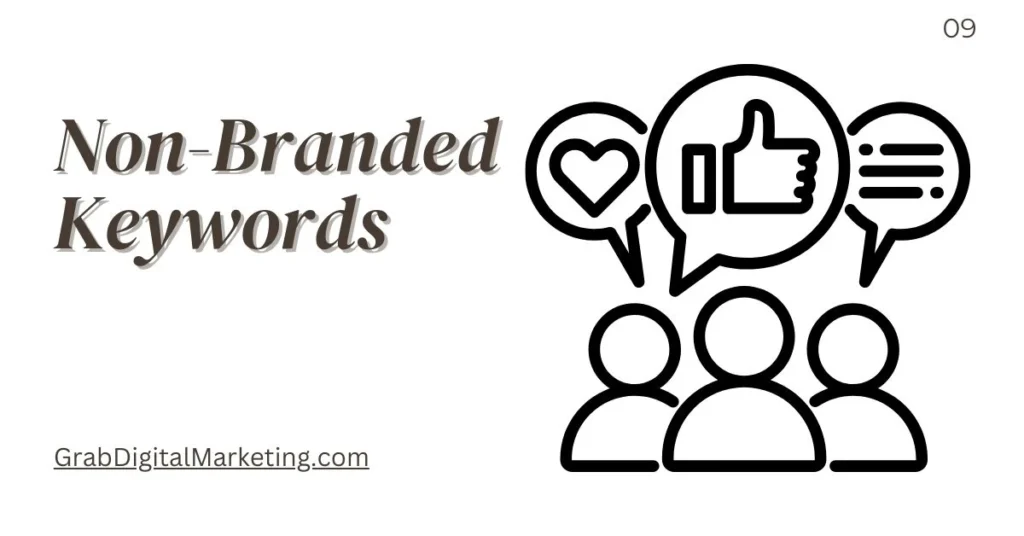
Non-branded keywords are search terms that describe products, services, or topics without including any brand names or specific company references. For example, phrases like “running shoes,” “best smartphones 2025,” or “vacation rentals in Paris” are non-branded keywords. These keywords are used by people who may not yet know about your brand and are usually in the research or discovery phase of their buying journey. Non-branded keywords are important because they help you reach a broader audience and attract new potential customers who are not familiar with your brand. This wider reach can increase your website traffic and brand awareness. However, because more advertisers target broad non-branded keywords, competition tends to be higher, making the cost per click (CPC) generally more expensive than for branded keywords.
Advantages:
- Reaches a broader audience
- Attracts new customers who may not be familiar with your brand
Disadvantages:
- Higher competition and cost
- Requires more extensive keyword research and management
10. Local Keywords
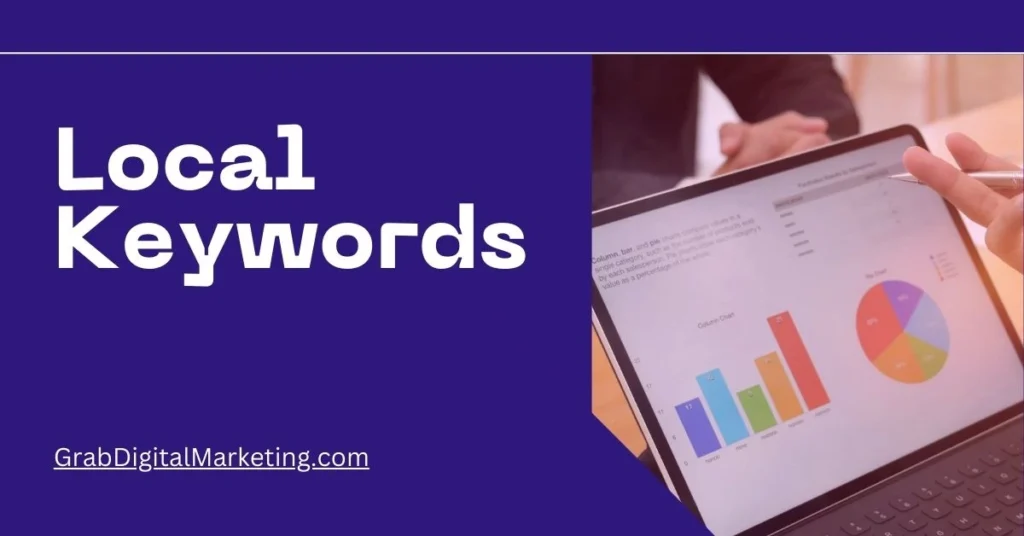
Local Keywords are search terms that include a specific location or indicate local intent, helping businesses connect with customers in their vicinity. These keywords often mention a city, neighborhood, or phrases like “near me” to signal that the user is looking for products or services close to their current location—for example, “best coffee shop in Mumbai” or “emergency plumber near me”. Local keywords are crucial for businesses serving a specific geographic area, as they enhance visibility in local search results, Google Maps, and ‘near me’ searches. Using these keywords in your Google Ads campaigns or website content can attract ready-to-buy customers who want immediate service or products in their vicinity. This makes local keywords highly valuable for converting local searchers into actual foot traffic or sales.
Advantages:
- Targets users in specific geographic areas
- Can improve foot traffic and local business visibility
Disadvantages:
- Limited reach outside the target location
- Requires accurate and up-to-date location data
11. Competitor Keywords
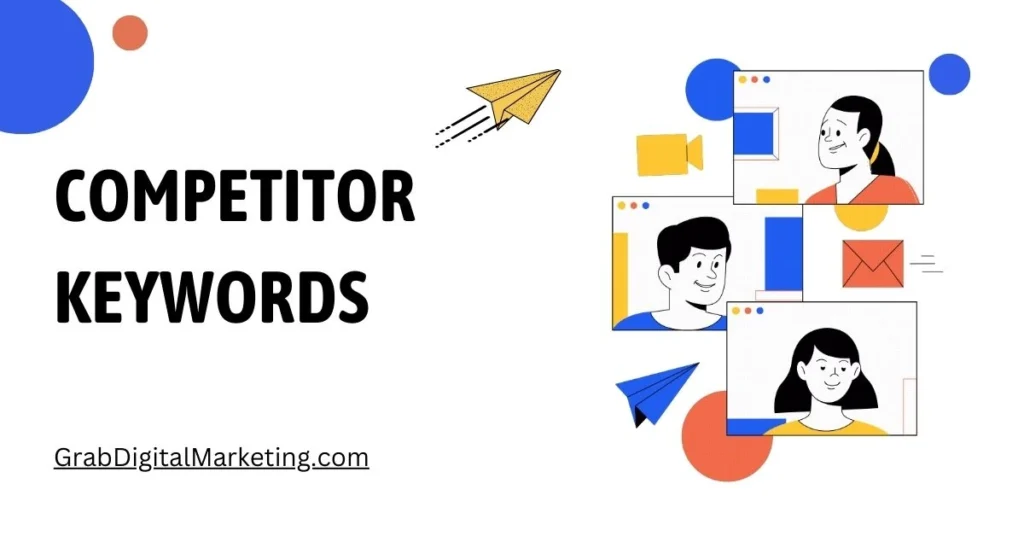
Competitor Keywords in Google Ads are the keywords and search terms that your competitors target to attract potential customers. These keywords appear in their ad campaigns or organic search results and are related to the products or services they offer. By analyzing competitor keywords, you can discover which search terms are driving traffic to their websites and assess which ones could work for your campaigns. Using competitor keywords strategically helps you identify new opportunities, optimize your ad spend, and improve your ad targeting. For example, if your competitor is successfully targeting the keyword “organic skincare products,” you might explore bidding on that same keyword or related phrases to compete in the same space. This research also helps you find gaps—keywords your competitors are not using—that you can target for better results.
Advantages:
- Attracts users researching competitors
- Can provide opportunities to showcase your unique selling points
Disadvantages:
- Higher competition and cost
- Potential for lower relevance and conversion rates
12. Seasonal Keywords
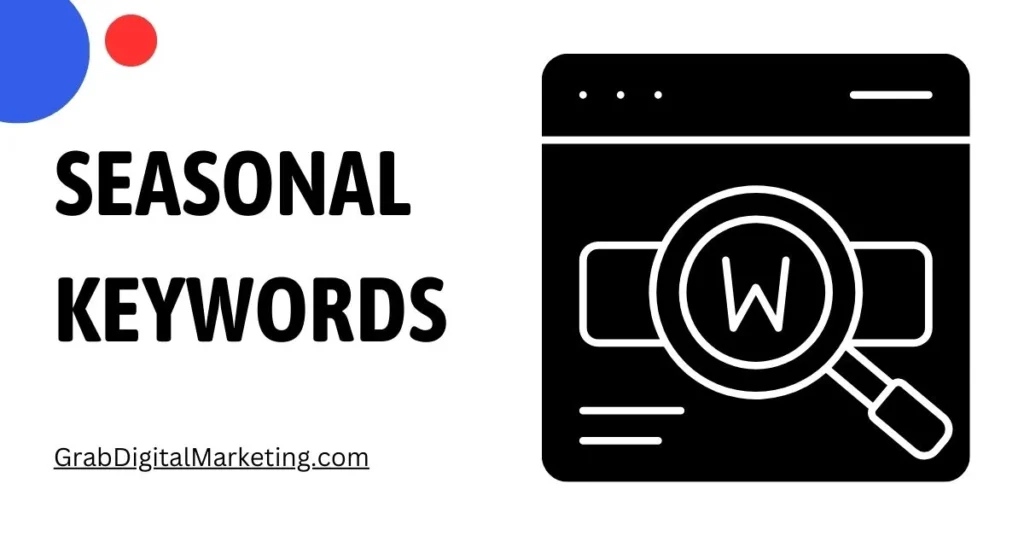
Seasonal Keywords are specific search terms that become highly popular during certain times of the year, such as holidays, seasons, or special events. For example, keywords like “Christmas gifts” spike in December, “swimsuits” see more searches in summer, and “tax preparation” peaks around tax season. These keywords reflect consumer interests that shift predictably with the calendar, making them crucial for aligning your advertising and content to match when people are actively looking for related products or services. Using seasonal keywords in Google Ads and AdSense campaigns can greatly boost your visibility and sales during peak periods. By targeting these time-sensitive search terms, you attract an audience that is ready to buy or engage precisely when demand is highest. This helps your ads stand out, drives more relevant traffic, and improves conversion rates while maximizing the efficiency of your marketing budget.
Advantages:
- Capitalizes on increased search interest during peak periods
- Can drive higher traffic and conversions during specific times of the year
Disadvantages:
- Limited relevance outside peak periods
- Requires ongoing monitoring and adjustments to align with seasonal trends
Conclusion
Selecting the right mix of keywords is crucial for the success of your PPC campaigns. By understanding the different types of keywords and their advantages and disadvantages, you can create a more effective and targeted strategy. Remember to continuously monitor and optimize your keyword performance to ensure that your ads are reaching the right audience and driving the desired results. With the right approach, keywords can be a powerful tool in your PPC arsenal, helping you achieve your advertising goals and grow your business.

